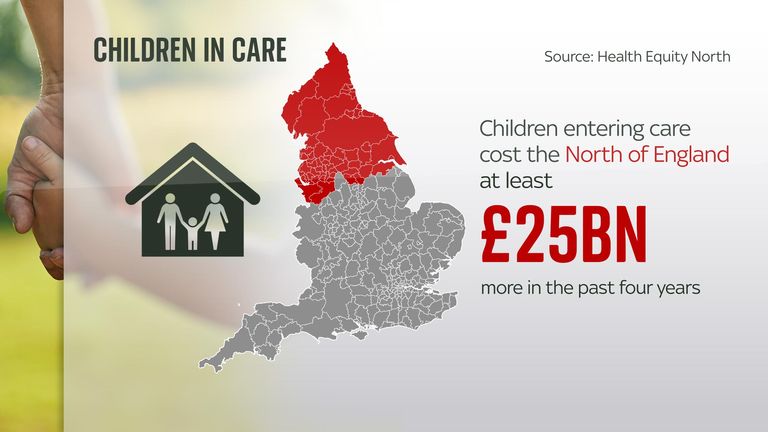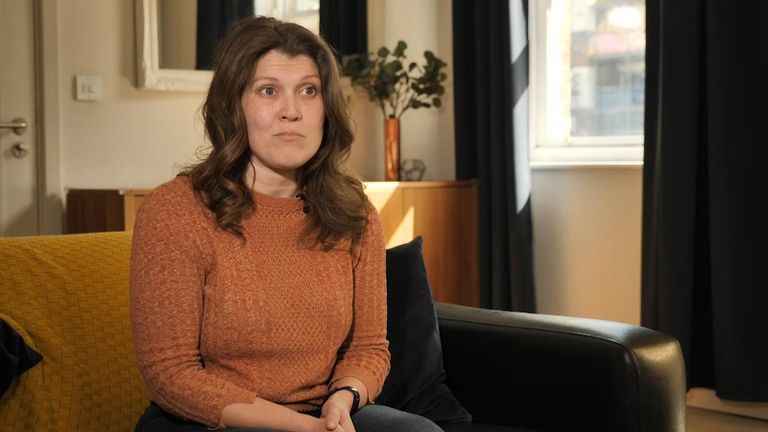One in every 52 children in Blackpool is in care compared with one in 140 across England, according to new analysis which researchers said exposes “deeply rooted social inequalities”.
The report also found the North of England accounts for just over a quarter (28%) of the child population, but more than a third (36%) of the children in care, the analysis by the Child of the North All-Party Parliamentary Group (APPG) said.
Professor David Taylor, the co-author of the report, said the findings reflect a “doom loop”, with poverty pushing children into the care system at an additional cost to local and national government.
He said: “Cuts to prevention services, things like Sure Start, family support, investment in youth services have been cut, particularly in the areas where they’re needed most.
“In those places poverty has gone up, that’s increased the number of children in the care system and it’s putting incredible pressure on health and care systems.”
The report was researched and funded by Health Equity North – an organisation focused on finding solutions to public health problems and health inequalities across the North of England. It used existing data including official statistics and academic studies.
The analysis also suggested the higher rates of children entering care are estimated to have cost the North at least £25bn more in the past four years.
In the light of the report’s findings, APPG members and the report authors have made a number of recommendations, including policies to reduce child poverty such as scrapping the two-child limit and benefit cap, as well as more investment in prevention strategies such as targeting additional investment in the North.
‘A part of you ripped away’
One person who has benefited from this type of grassroots support, is Kirsty, a mother from Newcastle.
She became a mum at the age of 17. Her daughter was taken into care twice, in moments she described as “tragic”.
“I’ve been through a lot in my life, but losing a child is the most traumatic, unexplainable feeling that I could ever imagine,” she said.
“It’s like having a part of you ripped away, then not understanding and not feeling good enough.”
Kirsty previously struggled with a drug addiction and had been a victim of domestic abuse.
She was also previously homeless before eventually joining a narcotics anonymous group, and later being supported by Reform UK, an organisation in the area aimed at improving the outcomes of mothers at risk of child removal.
Read more:
Labour commits to keeping free childcare expansion plans
More than 40% of parents are going into debt to pay for childcare
Their work involves creating a “sisterhood” in the form of a safe space aimed at allowing women to share their experiences and finding them the right support for issues like addiction, domestic abuse and homelessness.
Reform’s chief executive Amy Van Zyl feels the social care system needs to be better equipped and better funded to help people with complex needs.
She said: “Women who come to our service don’t have friends and loved ones. What they gain when they come into our service is friends and loved ones, we can then signpost them to services.”
Kirsty, who is speaking about her experiences at an event in Parliament on Wednesday, feels she could have benefited from early intervention.
She said: “If there was anything like Reform back then or anywhere else it would have made a massive difference.
“Because I felt like I was the only person, I felt like I not only failed me but I failed my family and I brought shame on everyone because I wasn’t able to look after my child and that wasn’t the case.
“All of the reports that were done by social services said that I was a good mum, and that I was really good with my daughter. It was just my lifestyle. I didn’t have accommodation and my drug use and all that stuff could have been helped. It’s curable.”
In response to the report, a Department for Education spokesperson said: “Early intervention is at the core of our ambitious children’s social care reforms – including a £45m investment in pilot areas across the UK to help us shape a future system where we provide families with the right support at the right time, delivered by the right people.
“For those leaving care, we are investing £250m over three years to help them succeed – providing housing, access to education, employment, and training.”
Source Agencies





